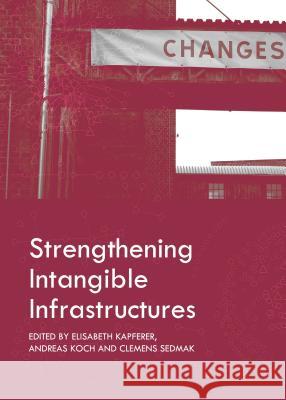Strengthening Intangible Infrastructures » książka
Strengthening Intangible Infrastructures
ISBN-13: 9781443853002 / Angielski / Twarda / 2013 / 323 str.
The term 'infrastructure' commonly refers to the partly naturally given, partly manmade constitutive conditions that affect, enable, and ensure our everyday lives. This concept is generally used in an economic sense and highlights the material and institutional facilities of our environment that can be summed up as the tangible means which our societies are based upon. Consequently, talking about 'intangible infrastructures' may appear to be a somewhat unusual concept. The term 'intangible' includes areas of our lives that are not (or are not primarily) represented physically; it points to invisible realms of the human existence, both intellectually or knowledge-based; to cultural and even ethical matters, and to the social adhesives and cultural techniques that civilizations are being built on. As 'intangible infrastructures', we regard them as fundamental for our well-being and for a good quality of life. This volume is a result of a two-day conference held in December 2012 in Salzburg, Austria, which brought together researchers and practitioners from manifold scientific backgrounds, including sociology, philosophy, social geography, economics, urban studies, political science, history, communication sciences and public communication. The text draws a map of current discourse on intangible infrastructures, and provides strategies of strengthening intangible infrastructures.











